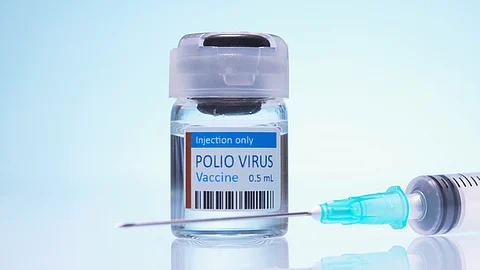

As the world observes World Polio Day on October 24, the fight to eradicate polio continues to face challenges, particularly from vaccine-derived polioviruses. According to the United States Centers for Disease Control and Prevention (CDC), 74 outbreaks of circulating vaccine-derived polioviruses (cVDPVs) were detected across 39 countries between January 2023 and June 2024. The persistence of these outbreaks underline the challenges of combating polio, even as global efforts intensify.
The transition from the trivalent oral poliovirus vaccine to the bivalent form was intended to reduce the risk of vaccine-derived poliovirus type 2 (cVDPV2) outbreaks, but the virus remains a concern.
The CDC found that 47 of the 74 outbreaks were newly detected, affecting 30 countries. These outbreaks led to 672 confirmed cases of acute flaccid paralysis, a severe symptom of polio. Countries such as the Democratic Republic of the Congo and Nigeria continue to see high transmission rates of cVDPV2, compounded by security issues and delays in vaccination campaigns.
Efforts to stop cVDPV transmission have shown mixed results. While progress has been made in controlling cVDPV type 1 (cVDPV1), particularly in Madagascar and Mozambique, the type 2 strain remains problematic. The novel oral poliovirus vaccine type 2 (nOPV2), which was introduced as a safer and more stable alternative to the original vaccine, has faced supply shortages, hindering response efforts in multiple countries.
The virus has continued to spread across borders, with Nigeria and Somalia acting as key regions from which cVDPV2 has spread to neighbouring countries.
According to the CDC, several factors have contributed to the persistence of cVDPV2 outbreaks, including poor-quality vaccination campaigns and gaps in surveillance. Many of the affected areas are hard to reach due to conflict, displacement and logistical challenges, making it difficult to vaccinate children in these regions.
Countries struggling with polio outbreaks need to prioritise resources and strengthen their vaccination efforts, especially in vulnerable and high-risk areas. Enhanced surveillance, increased laboratory capacity for genomic sequencing and better response coordination are also necessary to track and contain new outbreaks effectively.
The World Health Organization (WHO) reported that in 2023, 83 per cent of infants globally received three doses of the polio vaccine, a key measure in preventing the spread of both wild and vaccine-derived polioviruses.
However, coverage rates vary significantly by region, with the WHO European Region achieving 89 per cent coverage, while the South-East Asia Region lags behind with only 6 per cent coverage. Such disparities highlight the importance of sustained global efforts to ensure that all children, particularly those in vulnerable countries, are vaccinated.
The ongoing threat of polio remains concentrated in Afghanistan and Pakistan, the only two countries where wild poliovirus transmission has not been stopped. Until the virus is eradicated in these countries, the risk of polio spreading to other regions remains high, especially in countries with weak public health infrastructure or low vaccination coverage.
The importation of poliovirus from endemic regions continues to pose a risk to global health, underscoring the need for vigilance and cooperation across borders.
Adding to the complexity of polio eradication efforts, the recent postponement of a polio vaccination campaign in northern Gaza due to ongoing conflict illustrates the challenges health authorities face in conflict zones.
The Polio Technical Committee for Gaza, which includes the Palestinian Ministry of Health, WHO, United Nations Children’s Fund or UNICEF and other partners, was forced to delay the third phase of a vaccination drive scheduled for October 23, 2024.
Intense bombardments by Israel, mass displacements and unsafe conditions have prevented families from accessing vaccination centres and health workers from safely operating in the region.
The campaign, which aimed to vaccinate over 119,000 children, had already completed its first phase in September 2024. However, without safe humanitarian corridors, many children in northern Gaza remain unvaccinated, increasing the risk of polio outbreaks in an already vulnerable population.
The WHO in August 2024 announced it was sending over a million doses of polio vaccine to the war-torn region after the virus was discovered in wastewater samples from Khan Younis and Deir al-Balah.